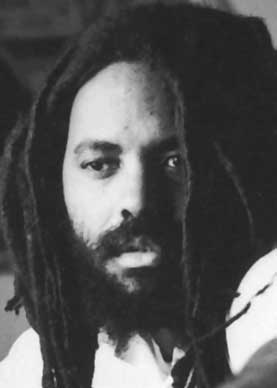![]()
Write us!
[email protected]
December 2003 • Vol 3, No. 11 •
The Seller And The Sold
By Mumia Abu-Jamal
 “They saw themselves as others had seen them. They had been formed by the images made of them by those who had the deepest necessity to despise them.”
“They saw themselves as others had seen them. They had been formed by the images made of them by those who had the deepest necessity to despise them.”
—James Baldwin, Notes of a Native Son
Sometimes, an honest examination of the institutions of a society tells us deep truths about the nature of that society. Such an examination reveals raw, uncomfortable, and hidden truths about what the unwritten rules are, and why.
When we examine the way that public schools have responded to the challenge of educating African-American children, we must conclude that the education of millions of such children are not the real priorities of this society. Millions of such children emerge from public schools with little notion of their place in the world, or how to move through the society with sanity, with life-affirming rewards, and some semblance of peace.
They leave, far too often, early, and ungraduated. Others may graduate, but their achievements are slighted because of the light and undemanding nature of the studies. Whether one has graduated or not is not the mark of whether one is educated or not. Far too often, young Blacks are taught, if anything, how to get a menial job; how to work for others, how to sell some meager skill.
Meanwhile, in schools where the well-to-do live, the young are taught critical thinking; how to ask the right questions. Indeed, to question! They are taught, not how to sell themselves, but how to produce things to be bought by others, to secure and amass wealth.
What the American school system is is a class-bound structure that reproduces itself, in the next generation.
One generation is being trained to follow; the other generation is being taught how to lead. In such a system, how can we wonder why things are unchanged, from generation to generation?
As the late educator, Murray Levin, suggested in one of his last books on the dearth of instruction in Black and Latino schools in Roxbury, ‘oppression is the lesson.’
Why shouldn’t children, in a nation that claims to love liberty, be taught freedom?
Instead, they are conditioned to obey, to follow orders, to not rock the boat, to be . . . passive.
True education awakens, it does not darken the windows of perception. True education enlivens, it does not dull
the spirit.
This is what the elders of every civilization on earth have struggled to do. They tried to build young people who could take on the tasks of defending, building, and expanding the community.
In this new century, there are too many youngsters who are seen as expendable. They are presumed to be ignorant. They are left to rot on the vine of life, untaught and unproductive.
In a truly humanistic society, no person is seen as expendable.
In a society said to be based on “rugged individualism,” each individual is valued, and given the materials necessary to make a valuable contribution to the whole.
That isn’t happening now, and it is truly a scandal.
Young people should be given, as a social duty, the wherewithal to grow in knowledge and understanding of the world in which we live. They are to be accorded a history that reflects their place in the world that is, and the world to come.
To fail to do so is to commit a kind of social suicide. It is cruel. It is stupid. It is wrong.
If public schools are not functioning in this country, then it is incumbent upon this country to provide the materials necessary to transform the problematic present into a system of promise.
Anyone who questions the conditions of urban school districts should only peruse a copy of Jonathan Kozol’s Savage Inequalities. Schools shouldn’t reproduce social and class inequities, but work to eradicate them. If it fails to do this, then it merely reproduces the errors of the past, and leaves serious work undone, for generations yet unborn.
Mumia Abu Jamal is an award winning black journalist on Pennsylvania’s Death Row for the past twenty-three years. He has maintained his innocence from the start and another man, Arnold Beverly, has confessed to the crime of killing Police Officer Daniel Faulkner in 1981.
Write us
[email protected]